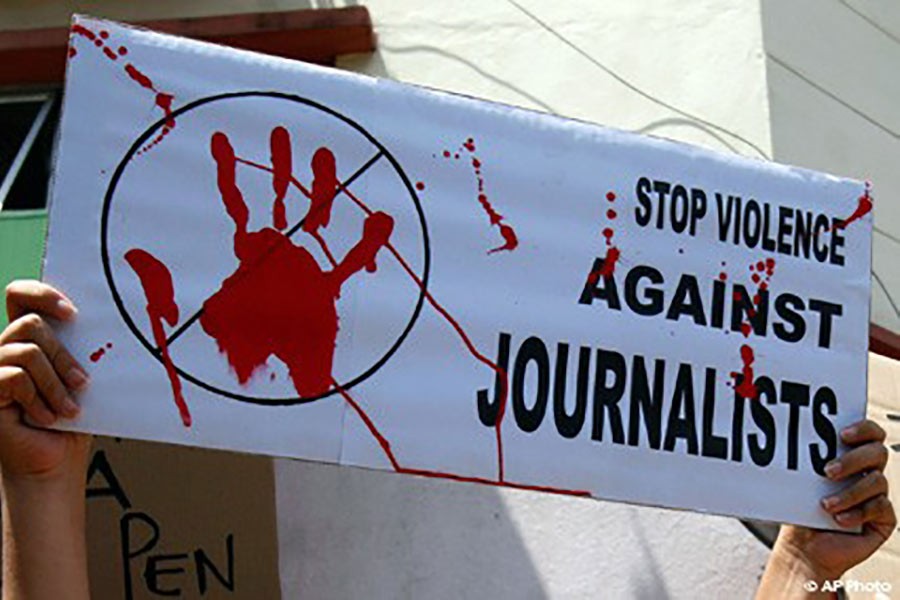Sixty-five journalists workers were killed around the world in 2017, according to the Reporters Sans Frontières (RSF).
The RSF revealed the information in its annual report published on Tuesday.
The report also says outgoing 2017 is the least deadly for reporters in 14 years as the toll was 79 last year.
In its annual report, RSF includes citizen journalists, professional journalists and media workers.
Among them 50 were professional reporters. This toll is also the lowest in 14 years.
The report said 39 were murdered among the total deaths, while the rest died in the line of duty -- collateral victims of deadly circumstances likes air strikes or suicide bombings.
Australian Special Broadcasting Service SBS News has published a news based on the RSF annual report on Tuesday.
However, the downward trend is due at least in part to journalists giving up working in the world's deadliest spots.
War-torn Syria remains the most dangerous country in the world for journalists, RSF said, with 12 reporters killed, followed by Mexico where 11 were assassinated.
The report included Javier Valdez, one of the most prominent chroniclers of Mexico's deadly drug war, whose murder in May sparked a public outcry.
The 50-year-old contributor of a global meia was shot dead in broad daylight in the street in the violent northwestern state of Sinaloa.
The Philippines has become Asia's most dangerous country for reporters, with at least five journalists being shot in the last year, four of whom died of their injuries. No journalists were killed in the country the previous year.
"Countries such as Syria, Iraq, Yemen, and Libya have been haemorrhaging journalists." But the trend is not confined to countries at war, RSF added.
"Many journalists have either fled abroad or abandoned journalism in Mexico, where the criminal cartels and local politicians have imposed a reign of terror," it said.
Turkey is the world's biggest prison for professional journalists, the figures show, with 42 reporters and one media worker behind bars.
"Criticising the government, working for a 'suspect' media outlet, contacting a sensitive source or even just using an encrypted messaging service all constitute grounds for jailing journalists on terrorism charges," the report said.
With 52 languishing in jail, China, however, continues to lead the table when bloggers are taken into account.
RSF accused Beijing of toughening its "arsenal of measures for persecuting journalists and bloggers.


